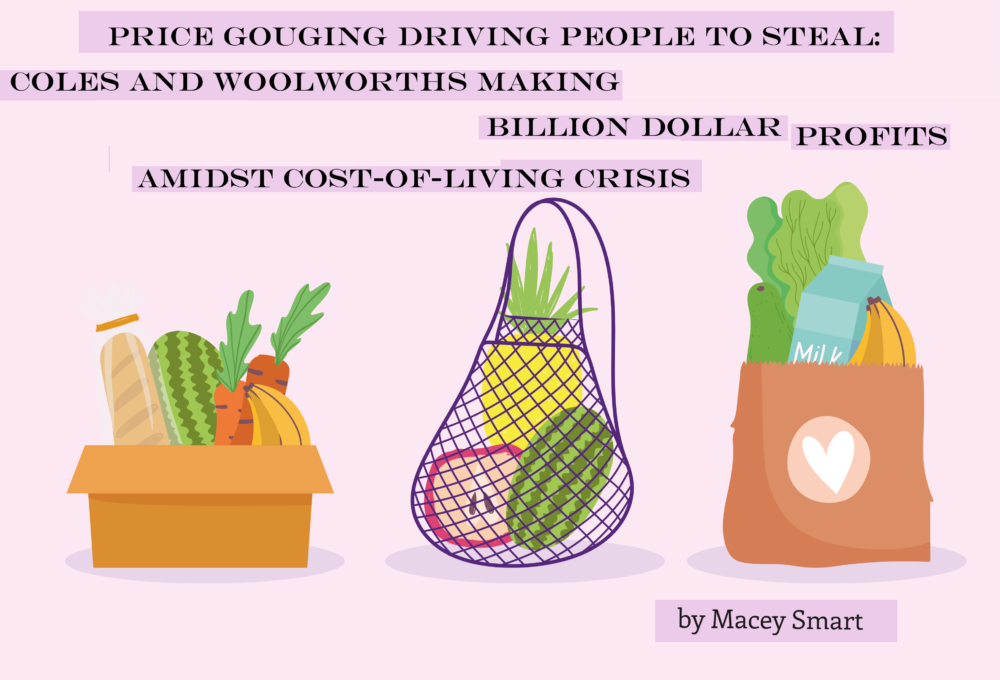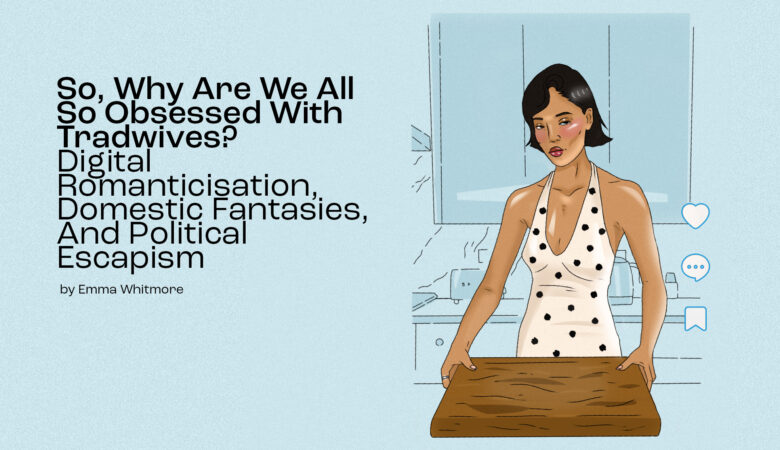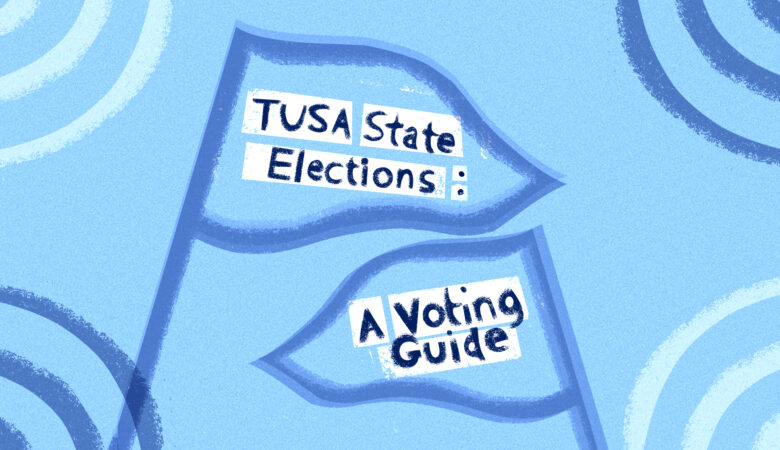As I’m sure you know, we are experiencing a cost-of-living crisis; it is an inescapable reality that prices for almost everything have been soaring, and many Australians are struggling to keep up. The fact that Australia’s two dominant supermarket chains have used this to increase profits will also be of little surprise to most readers. Disappointingly, we have come to expect nothing less of supermarket giants Coles and Woolworths.
In August this year, Coles announced a net profit of $1.1 billion—a 4.8 per cent increase from the 2021-22 financial year—while rival chain Woolworths announced an even greater profit of $1.62 billion—a 4.6 per cent increase. Yep, you read that right: billion with a B.
Earlier this year, SBS reported that groceries have risen in price by around 9.6 per cent from April 2022 to April 2023. At the same time, the Consumer Price Index, which is a quarterly measure of inflation, was at 7 per cent. This means that supermarket price increases are unjustifiably above what would be necessary to align with inflation. By raising their prices exorbitantly—under the guise of inflation—Coles and Woolworths are seeking to actively profit from the cost-of-living crisis.
Seeing these statistics indicating unnecessary price-hiking and billion dollar profits is certainly disappointing when so many are struggling. In a survey undertaken by consumer advocacy company Choice, 88 per cent of respondents said they were worried about the cost of groceries. In 2021, this number was 56 per cent. It is not normal that nearly 9 in 10 people are worried about the cost of putting food on the table. Last month, ABC reported that even individuals with the security of full-time work are using food banks and accessing emergency food relief.
You might be wondering how it is possible for two businesses to have such an impact. The reality is that the market of Australian grocers is dominated by just two retailers, with other competitors unable to keep up. This is not the case for other comparable markets such as those in the US or the UK—instead of the Big 6 or the Big 5, Australia is stuck with the Big 2. By having fewer dominant competitors, customers are more likely to accept higher prices, as there is little option to ‘shop around’. This can become a cycle, as retailers are more willing to increase prices due to lower risk of profit/customer loss.
New and extreme anti-theft measures have been implemented as a result of higher rates of theft—supermarkets have noted an astounding increase in stealing in recent months. This is presumably due to cash-strapped shoppers being left with theft as one of their only options to procure essentials. Chief operating officer of Coles, Matt Swindels, has said that stock loss has risen by 20 per cent since last year. In response, Coles is reportedly boosting security guard numbers, as well as installing new high-tech security gates that can identify if a customer is leaving without paying. Woolworths has implemented similar measures, including cameras and “incorrect scan” technology at self-checkouts. Trials are being conducted on new technologies involving sensors built into supermarket ceilings, wherein customers are assigned digital IDs and tracked in-store.
With reported price increases of nearly 10 per cent, it is hardly surprising that individuals are being driven to steal—the reality is that many of those partaking in theft see it as a necessity.
In early November, Coles and Woolworths were recipients of a Shonky award, a list created each year by Choice, of the year’s worst products and services—those that “have added distress, disappointment and difficulty to our lives”. The reason behind their award was cited as “cashing in during a cost-of-living crisis”. This award serves as a deserved shaming to the companies and holds them accountable for their immoral behaviour.
These supermarket chains are exploiting inflation as a means of making billion-dollar profits, while a majority of Australians are experiencing extreme financial stress. As young people especially, this is a scary time to be living through. When people with a full-time wage struggle to afford basic necessities like food, how are students and other low-income groups expected to get by? Or part-time workers, or those unable to work due to disability or illness? Coles and Woolworths have demonstrated a reprehensible lack of humanity through their price-gouging and deserve repercussions.
For students struggling with the rising cost of food, the TUSA Food Hub, located on the Sandy Bay campus, is a free food pantry initiative to provide food relief to students. More info can be found here: https://www.tusa.org.au/food-hub/
Hobart City Mission also provides food relief for those in need. Find more info here: https://hobartcitymission.org.au/emergency-assistance/







